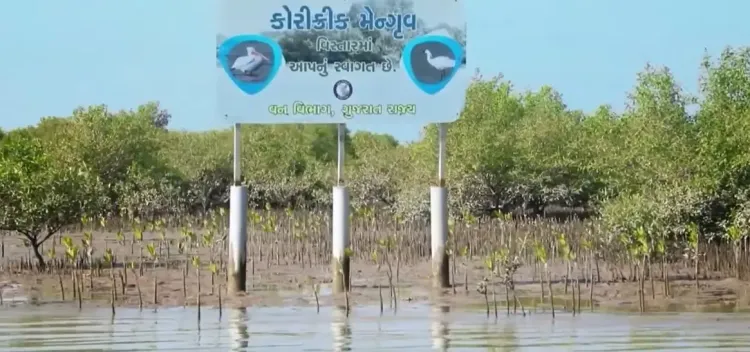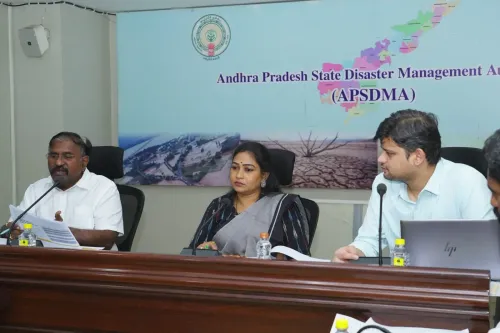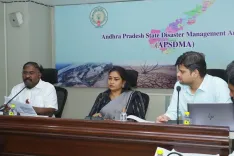How is PM Modi Recognizing Gujarat's Environmental Achievements?

Synopsis
Key Takeaways
- Citizen engagement is critical for successful environmental conservation.
- Gujarat's mangrove initiatives have significantly increased the state's ecological footprint.
- The state is a leader in renewable energy production in India.
- Community clean-up campaigns reflect a strong commitment to addressing plastic pollution.
- Innovative policies are paving the way for sustainable development.
Ahmedabad, Oct 26 (NationPress) Prime Minister Narendra Modi on Sunday praised Gujarat's continuous efforts in environmental conservation and the advancement of a green India, particularly highlighting the Kutch region.
The Prime Minister acknowledged the initiatives focused on protecting and nurturing trees and plants, encouraging citizens to actively engage in expanding these efforts throughout the state.
Pointing out notable projects, PM Modi referenced the swift advancements in mangrove plantation drives in the Kori Creek area. He also introduced the establishment of a Mangrove Learning Centre, aimed at bolstering local efforts in environmental stewardship and sustainable development.
Stressing the broader importance of greenery, the Prime Minister noted that trees and plants, no matter their location, contribute significantly to the welfare of all living beings and are essential for maintaining ecological balance.
During his speech, PM Modi reiterated that citizen involvement is vital for protecting ecosystems, addressing climate change, and constructing a sustainable future, urging everyone to take part in India's green initiatives.
Gujarat has positioned itself as a national frontrunner in environmental conservation, employing diverse strategies in coastal protection, renewable energy, and ecosystem restoration.
The state has made significant strides in expanding its mangrove cover, with more than 19,000 hectares afforested under the central government's MISHTI scheme. This initiative has propelled Gujarat to a leading national position, achieving 19,020 hectares afforested in just two years, increasing the state's mangrove cover to 1,175 square kilometers - the second-largest in India after the Sundarbans.
As of October 2024, Gujarat stands as India's leader in renewable energy capacity, boasting a total installed capacity of 51,869 MW, which includes 19,421.89 MW from solar and 13,514.68 MW from wind energy.
The state's Renewable Energy Policy-2023 promotes small-scale projects, offering fixed tariffs and simplified approvals to foster sector growth. To tackle plastic pollution, Gujarat has initiated extensive beach clean-up campaigns.
On International Coastal Cleanup Day, over 51,500 kg of waste was collected and responsibly disposed of across 10 coastal sites, including Dwarka, Shivrajpur, and Dumas. These initiatives are backed by the Gujarat Pollution Control Board, local municipalities, forest officials, NGOs, and industries, highlighting the importance of citizen engagement and responsible waste management.









